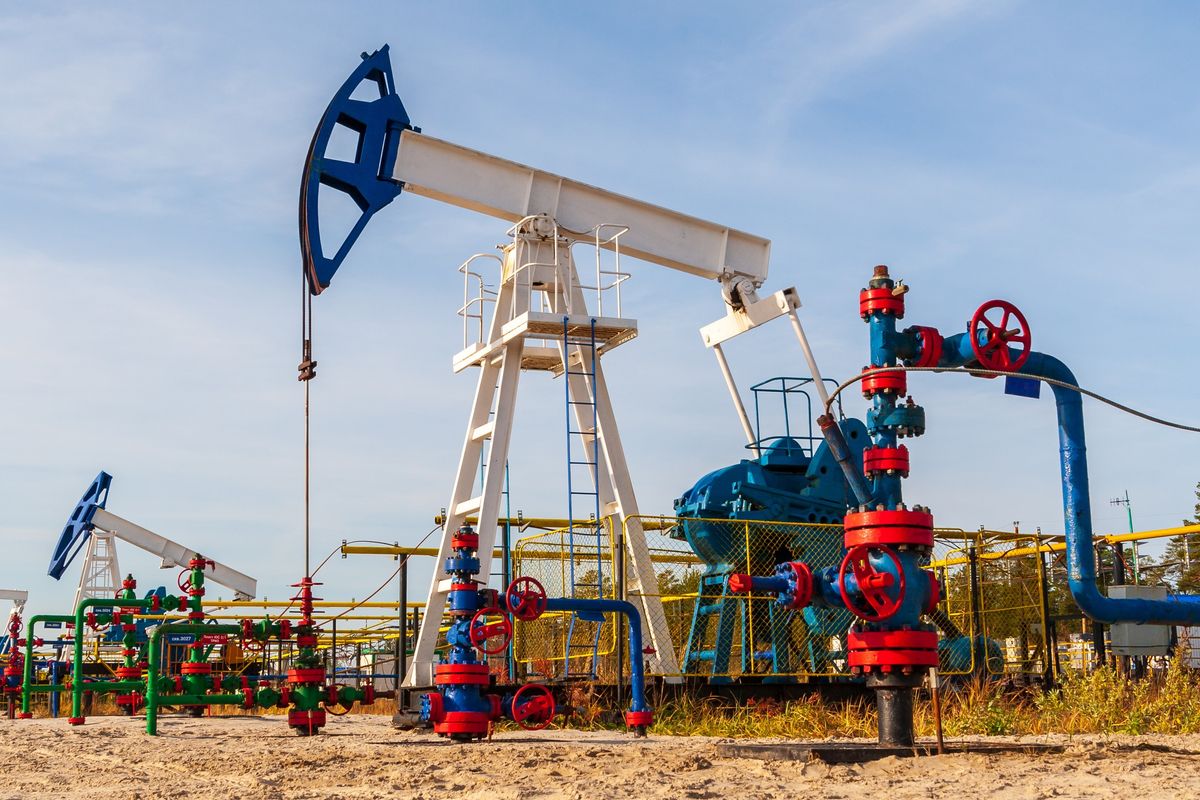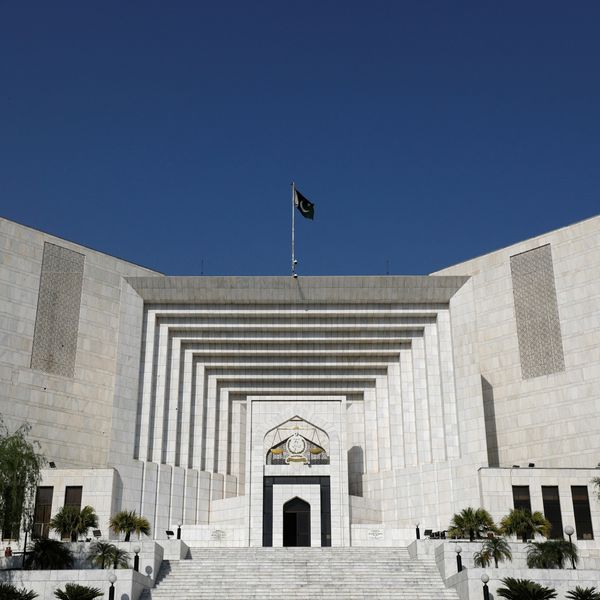Does it make sense for Pakistan to import U.S. crude oil?
The Pakistan government has been mulling hard on how to prevent the imposition of a 29% tariff by the U.S., and importing crude oil is one option under consideration

Haris Zamir
Business Editor
Experience of almost 33 years where started the journey of financial journalism from Business Recorder in 1992. From 2006 onwards attached with Television Media worked at Sun Tv, Dawn Tv, Geo Tv and Dunya Tv. During the period also worked as a stringer for Bloomberg for seven years and Dow Jones for five years. Also wrote articles for several highly acclaimed periodicals like the Newsline, Pakistan Gulf Economist and Money Matters (The News publications)

The Pakistan government has been mulling hard on how to prevent the imposition of a 29% tariff by the United States by finding ways to boost bilateral trade and reduce the balance of trade position which favors Pakistan in excess of $3 billion.
One way it is considering doing that is by importing crude oil from the U.S., for which it has gotten a favorable response. Duties have been relaxed on more than $5 billion worth of shipments at U.S. ports against nearly $2 billion worth of imports.
Pak-U.S. trade
Finance Minister of Pakistan Muhammad Aurangzeb, during a recent visit to the U.S., said the real issue was about the imbalance and not the tariff.
In the nine months ended March 31, Pakistan's exports to the U.S. rose 12% to $4.5 billion compared with the same period in the previous year, according to data posted on the website of State Bank of Pakistan. Exports in the year ended June 30 dipped by 8% to $5.4 billion.
Meanwhile, imports from the U.S. in nine months ended March 31 rose by 25% to $1.729 billion compared with the same period in the previous year while imports in the year ended June 30 dropped by 15% to $1.875 billion from a year ago, the central bank data said.
"We are already importing cotton and soya beans, and will look into importing more of the goods soon and attract investment from the U.S.," the finance minister said.
The Pakistan government will soon send a delegation to the U.S. to hold talks on possible relaxation on duties and explore new avenues to boost trade, said an official of the Ministry of Finance on Thursday.
Can Pakistan import U.S. crude?
"We definitely can import U.S. crude oil as it has similar qualities as Arab Light crude, which we are currently importing," Vice Chairman Cnergyico Ltd. Usama Qureshi told Nukta.
"Best crude would be 'WTI crude cactus' for our refineries. We can also consume the WTI Midland crude."
He added that Pakistan's refineries have the capacity to handle bigger vessels such as Aframax, Panamex and even Suzemax. The larger the vessel, the lower the freight cost per metric ton, he explained.
Qureshi said another important aspect of importing U.S. crude oil is that it would help refiners to increase petrol products, which have going down forcing Pakistan to heavily rely on imports.
In the nine months ended March 31, Pakistan imported 3.973 million metric tons of petrol and nearly 1.492 million metric tons of diesel, according to data received from Oil Companies Advisory Council, an authority that collects data of oil consumption, imports, and exports.
In the year ended June 30 Pakistan imported 4.727 million metric tons of petrol and 1.715 million metric tons of diesel.
Pakistan can import crude oil and petroleum products from the U.S., but it would involve significantly higher costs due to long-distance freight, insurance, and handling compared to regional suppliers like Saudi Arabia or the U.A.E., said Ali Nawaz, CEO Chase Securities.
"While diversification of sources can enhance energy security and provide leverage in negotiations, the added logistical expenses and strain on foreign exchange make U.S. imports less economically viable in the long term", he said.
Unless global price dynamics shift substantially in favor of American oil, such imports would offer limited benefit to Pakistan's economy and are better suited as a supplementary or emergency option rather than a primary supply strategy, Nawaz said.
Pakistan imported 6.689 million metric tons of crude oil in the nine months ended March 31, up 6% from 6.313 million metric tons during the same period in 2024, according to OCAC data. Crude oil imports in the year ended June 30, were around 8.418 million metric tons, the data said.
"Sourcing crude oil from more distant locations will deliver a double blow to Pakistan's economy", said Amreen Soorani, head of research at Al-Meezan Mutual Fund.
Beyond inflating the import bill, the increased transportation costs, coupled with potential rupee depreciation exacerbated by a widening trade deficit and pressure on forex reserves, will likely fuel domestic inflation, she said.
Furthermore, this influx of crude will supply domestic refineries already grappling with elevated inventory levels, said Soorani.
Viable option?
However, Muhammad Awais Ashraf, director research at AKD Securities, said the lighter quality and roughly 10% lower cost of U.S. fuel compared to Arab Light could make it a viable import option for Pakistan.
The lower price of WTI may offset the higher freight charges associated with transporting U.S. crude, he added.
Pakistan currently imports around 190,000 barrels of crude oil per day to meet its energy demands — a volume comparable to the amount imported by Chinese refineries from the U.S., said Ashraf.
"In my view when it comes to bridging the trade deficit or making trade fairer, the reduction in trade deficit should help. Pakistan is currently importing crude from Gulf countries largely, and switching to U.S. crude shouldn't even be a problem for refineries as they are already using a variety of crude," said Shankar Talreja, research analyst at Topline Securities.
Shahbaz Ashraf, chief investment officer at FRIM Ventures, said that crude oil imports from the U.S. could widen Pakistan's trade deficit in the short term, but it may also signal a strategic pivot to stabilize domestic energy supplies.
"If managed wisely — through favorable pricing or deferred payments — it might ease fiscal pressures," he said. While not a silver bullet, this move could strengthen Pakistan's negotiating position with U.S. authorities, especially if framed as part of broader economic reforms, potentially opening the door for tariff relief on Pakistani exports, the FRIM Ventures CIO said.
Agricultural imports
Talreja from Topline Securities pointed out that Pakistan can also discuss importing agricultural products such as cotton.
"Currently we are importing a substantial quantity of cotton from the U.S. and based on our import requirement, Pakistan can come to a preferential trade agreement with the U.S. for import of cotton and get preferential tariff for commodities which we can export like textile, rice and minerals."







Comments
See what people are discussing